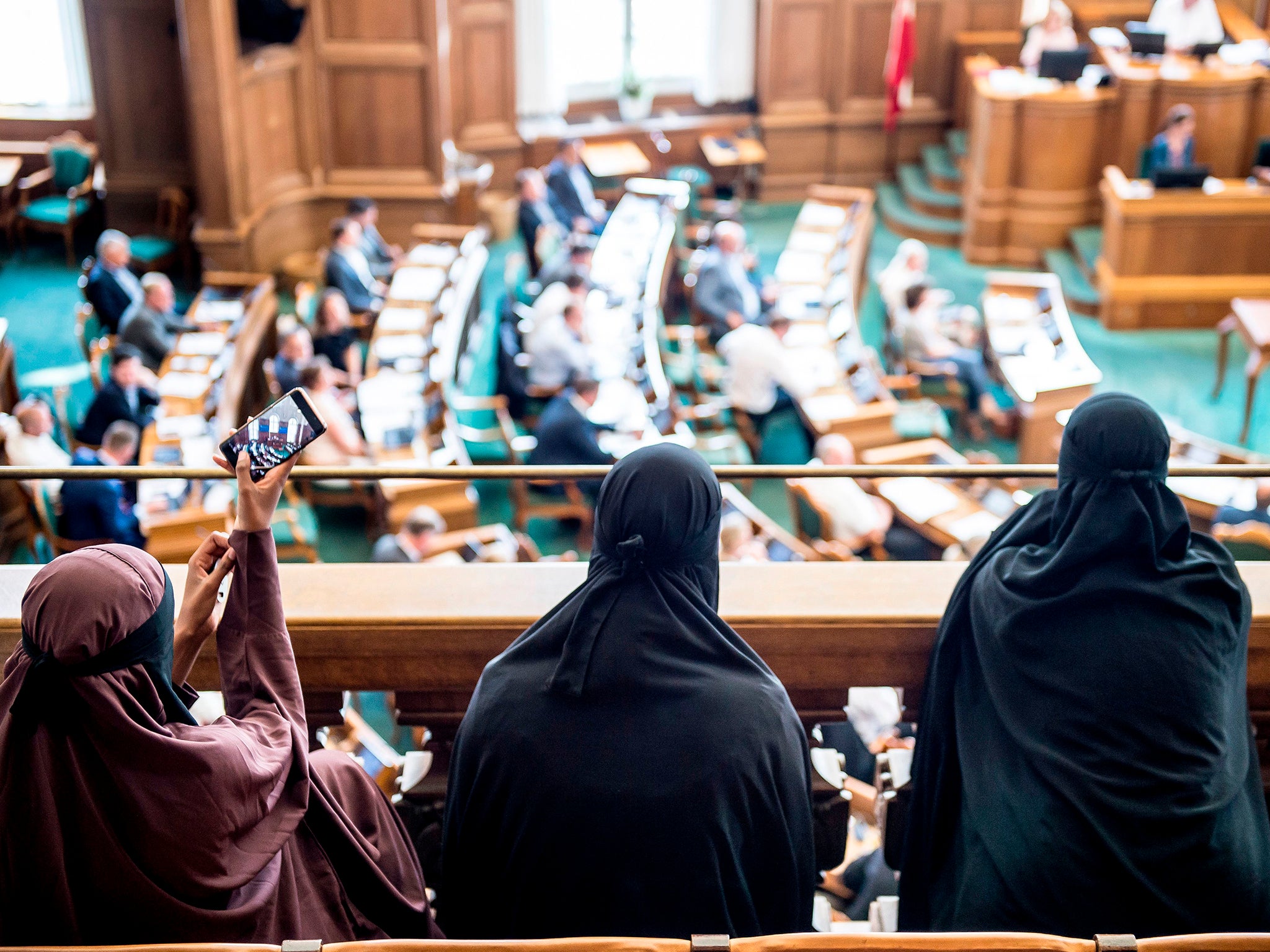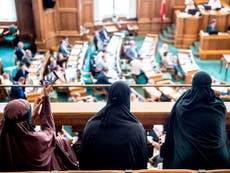Denmark's new burqa ban also covers beards and punishes people for living in 'ghettoes' – this isn't the mark of a secular society
The controversy over burqas, burkinis and beards isn’t really about clothing. It’s about the fear that immigrants might retain their non-Christian identities even while living in Western countries


This week Denmark joined three other European countries – France, Belgium and Austria – in banning the burqa. I have no doubt the people celebrating this were calling for more freedom of expression only last week.
But the predictable response fails to tell us the whole story. The burqa is just a sideshow; a flashpoint that everyone loves to argue about.
Slowly but surely, Europe is undergoing a move towards restricting religious freedom for non-Christians. The Danish government and media have focused on the burqa ban to get public consent, but the real issue is how minorities are being treated as second-class citizens.
Let’s start with Denmark. The law which came in this week also bans “fake beards” – which means Muslim and Sikh men become more likely to be stopped and searched just for having facial hair that stands out.
The prime minister also wants residents of “ghettos”, where most people are minorities, to face double the punishment for the same crimes committed elsewhere.
Here’s how Sukhraj Singh, a Sikh man living in Denmark, describes it: “This proposal also enables the police to define the zones where they have the power to issue double punishments. These will be called ‘special punishment zones’. This policy is inherently unjust. It unequivocally targets and punishes people for simply being born into ethnic minority and low income households.”
Another proposal is that parents who take their children to their country of origin, to learn that language or get acquainted with that culture, could face prison. I’m not making this up.
Does this look like a country that wants one law for all? In justifying the burqa ban, the Danish government said that burqas are “incompatible with Danish culture”. Presumably Christian nuns who cover themselves up are fine.
Let’s call a spade a spade. The controversy over burqas, burkinis and beards isn’t really about clothing. It’s about the fear that immigrants might retain their non-Christian identities even while living in Western countries. But rather than aid integration, all bans like these do it reinforce the view that minorities are second-class citizens. It will make many feel more criminalised, and alienate them from the justice system and the fellow people they’re supposed to be integrating with.
France has the same double standards. Muslims are told they should learn to be more tolerant and accept the right of others to offend them. But when French people are “offended” by a Muslim woman wearing a “burkini”, the state wants it banned.
Austria’s ban turned out to be a spectacular failure, with police mostly using it to arrest clowns, cyclists and people wearing sports hoods. That’s the stupidity you get when populism meets policy.
There is a right way to do this. Give people the freedom to leave their religion, the freedom to criticise and satirise religion, but also the freedom to practice their religion. The United States constitution offers people all of those rights and is the right way to approach this. All these freedoms have to go hand in hand.
Instead, some European countries are taking the opposite approach: under the guise of equal rights they are targeting and penalising minorities. It will backfire.
These bans imply that public expressions of faith are inherently dangerous for a modern secular society. In fact, the opposite is true. Allowing Muslims and Sikhs to be proud of their country gives them the freedom to practice their religion and at the same time see themselves as Danish or French. Restricting them says there is one rule for Christians and another one for everyone else. That is not the hallmark of a secular society.
I don’t support the niqab or burqa. I understand why many see it as a symbol of oppression and sexism. But women should have the freedom to do what they want with their own bodies. Anything else is illiberal, whether for Muslims, Sikhs or any other minority.


Join our commenting forum
Join thought-provoking conversations, follow other Independent readers and see their replies